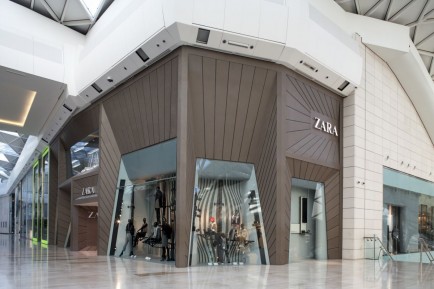
Zara is Inditex's flagship brand, and supremely profitable.
The name Inditex might not mean much to the average Joe or Jane on the street, but the clothing empire’s high street fashion brands certainly roll easily off the tongue for anybody who has ever spent a decent amount of time in Spain.
Zara, Pull&Bear, Bershka, Massimo Dutti, Stradivarius, Oysho and Uterqüe are all highly recognisable fashion brands across Spain and many parts of Europe and throughout the world, and are all owned by Inditex – which was founded by Galicia-born Armancio Ortega, who is known globally as Spain’s richest man…
Well now, Ortega is set to get just that little bit richer as Inditex has reported that its first half profits for 2015 have risen by 26% over the same period last year – reaching a whopping €1.16 billion for the six months between February and July.
This impressive boost in sales revenue stems largely from the company’s expansion – many new stores of all brands opened across Spain and Europe in the first half of this year as Inditex looked to take advantage of the recovering economic conditions much of the continent is enjoying.
But even taking new stores out of the equation, Inditex’s profits still grew by 7%, which is another indicator that Spaniards are no longer feeling the economic pinch and are happy to loosen the purse strings once more.
One additional theory is that the recent scorching summer Spain has just enjoyed compelled thousands more shoppers to reassess their summer wardrobe, with Inditex’s range of clothing options broad enough to cater for all shapes, sizes, styles and budgets.
The additional 94 Inditex stores that have opened so far this year – predominantly Zara and Zara Home – helped the company corner a greater share of the summer market from rival H&M, which posted a fall in profits because of the prolonged summer. According to H&M’s financial reports, the company had to delay the launch of its autumn and winter collection, which allowed Spain’s more summer approach to fashion to steal a march on its Scandinavian competitor.
Inditex’s expansion and success this year has helped to create an additional 12,000 new jobs in the territories in which the company operates, with more than 2,500 of those positions in Spain itself.
 en
en



 Vlaams-Nederlands
Vlaams-Nederlands
0 Comments
Leave a Comment
DISCLAIMER
The opinions and comments expressed by contributors to this Blog are theirs alone and do not necessarily reflect the views of VIVA Homes Under the Sun Ltd, any of its associated companies, or employees; nor is VIVA to be held responsible or accountable for the accuracy of any of the information supplied.
Have you got something to say?